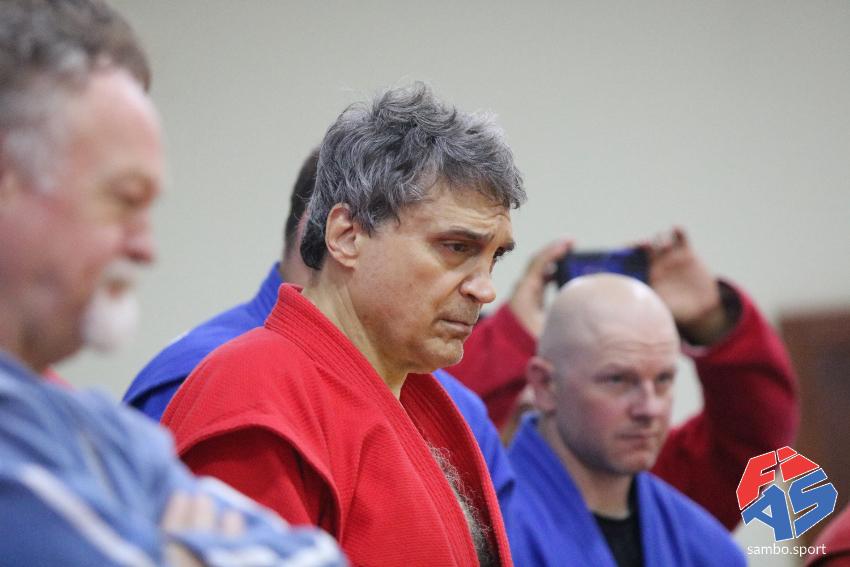The fencing team has been under the stewardship of Dayn DeRose for the better part of two years, but DeRose’s career as a fencing coach spans four decades. His career in martial arts is just as storied.
DeRose is a black belt in Judo, Ju Jitsu and Karate. DeRose’s most notable martial arts successes come in the discipline of sambo, an art of Soviet origin that has become an international combat sport.
“I remember looking at it and asking myself, ‘What are they doing?’ They were doing these ‘no apparent fear of death’ entries for throws that I had never seen before,” DeRose said of the sport. “I had to learn how to do it, and the only way to learn sambo was to compete at it.”
DeRose’s sambo successes included medals at both the national and Pan-American levels. Just as with fencing, DeRose’s sambo career would eventually lead him to coaching. After his 20 years coaching fencing at Drew University, DeRose took the opportunity to coach USA Sambo internationally.
“When I started coaching sambo, I was still in graduate school,” DeRose said. “I was invited to coach internationally, but I didn’t have the money at the time. It wasn’t until I retired from Drew that I actually started going.”
DeRose coached the World Combat Sambo Team in 2014 and has traveled with the team as an assistant ever since. DeRose now also owns and operates South Mountain Martial Arts where he is the chief instructor. For DeRose, the opening of his martial arts studio represented a titanic shift from his earlier career as a counselor.
“I realized that I wanted to make a change in life,” DeRose said. “There were people doing great things, but I realized it wasn’t for me.”
From his experience in martial arts coaching, DeRose learned that less frequent, well-timed coaching can have a much greater effect on competitors than constant instruction. According to DeRose, many people in the martial arts scene were shocked when a video of him coaching in Mongolia surfaced online.
“People would write to me and say ‘Dayn, you’re so calm!’,” DeRose said. “But that calmness only shows because I only talk when the individual out there needs the advice. I want them to be able to pick my voice out of the crowd.”
This is a lesson that DeRose has carried with him into his role as the head coach of Lafayette fencing.
“I’ve learned to manage the intensity of competition,” DeRose said. “It’s important that intensity be translated rather than dominating the individual.”
Another pillar of DeRose’s coaching philosophy is his emphasis on accountability, with a particular focus on his athlete’s preparation.
“There are days where you’re not going to perform your best or are going to miss,” DeRose said. “I never yell at a competitor, unless they knew they could do better and threw it away. I will start to show that sternness, but only for the things you’d think: practice regularly and do your best.”
According to junior foil Anna Silver, DeRose pairs this sternness with a strong ability to motivate and encourage.
“He’s always super motivational during meets, and he gives great pep talks,” Silver said. “We’re able to have an open conversation with him which is a great thing to have between the team leaders and the coach.”























































































































